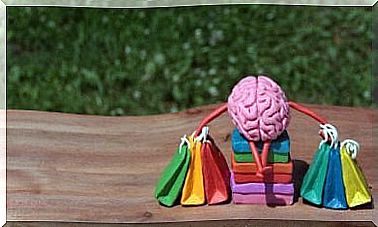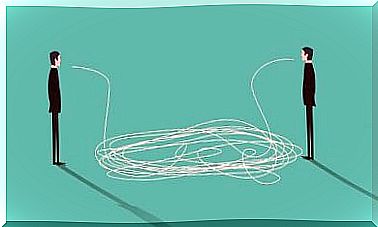Physical Pain And Forgiveness

Forgiveness is a complex inner process, in which we – necessarily – call on different emotional resources. This internal pardon , showing mercy to others and especially to yourself, rarely happens spontaneously – especially not in the case of deep wounds. It is often very difficult to sincerely pardon someone, to stop blaming him or her for what has happened. At the same time, it is actually not an option to continue to hold a grudge, because that is above all at the expense of your health and happiness.
Sometimes it seems that physical pain is inexplicable – but appearances can be deceiving. Ask yourself, and imagine inside, how often physical discomfort is directly or indirectly caused by mental and emotional distress.
Doctors’ offices, every day, are packed with people (desperately) seeking relief from this type of psychosomatic suffering, and the vast majority of patients walk out with a prescription for drugs that will merely mask their symptoms. The problem is as follows: when the cause of physical symptoms is not evident – not easy to trace back to an official diagnosis – and the symptoms of the disease are not acutely threatening, then people generally opt for the cheapest, easiest, standard treatment procedure, instead of getting to the bottom of what might actually be going on.
Everything that happens spiritually in and with us has an irrevocable repercussion on our body. And for a simple reason: our entire body is closely connected with and innervated by our central nervous system, which is integrally responsible for receiving and processing our emotions. So when emotions or thoughts are internally manipulated, denied, or suppressed, they basically manifest themselves identically in our experience.
Usually such repression manifests itself in the form of physical irritation or pain somewhere in the body, which cannot be rationally explained (unequivocally), nor detectable with the aid of medical tests. This ‘enigma’ can cause concern not only for the affected person, but also for the doctor, if he or she is not familiar with functional disorders.
The Body and Forgiveness
Several studies on this theme have convincingly demonstrated that there is an intimate connection and interaction between physical pain and intimate emotional processes such as forgiveness. We’re discussing this topic because almost everyone has to deal with this (repeatedly) sooner or later, and it’s a massive emotional challenge, in which powerful, hard-to-bring sentiments throw us off balance. As there are: anger, sadness, paranoia, and vengeful feelings. Thus, it can cause serious emotional damage, or demand your attention through a physical defect.

The body speaks when words fail. To refuse to forgive is to dwell in the past, chained to a petrified feeling that does not evolve, or transform. This hidden bitterness and hostility feeds on itself: a fermenting, negative acidification. Some translate it into metaphor: like holding a lump of burning coal in your hand, waiting for the right moment to throw it at the so hated culprit. After all, this contraction causes yourself much more damage than the target, than the one you are trying to hit.
A number of organs in particular suffer from withheld, or prematurely withdrawn, forgiveness, namely: the throat, airways, neck, ankles, and back. If one or more of these body parts hurt — for no apparent reason — it could be an indication of a lack of forgiveness, or a specific, unfinished change.
The map of forgiveness in the body
It is recommended to pay extra attention to physical aches that regularly arise – and then fade away – without understanding (exactly) why. Because such periodic inconveniences are probably related – to a greater or lesser extent – to unresolved emotions, especially frozen forgiveness, which you refuse to let flow (naturally). That’s the sensory language of the body, and how it ‘gives you a message’ about the importance of forgiveness.

- : A sore throat can betray words left unspoken, or the inability to express the pain of a verbal attack or insult.
- : A sign of proudly stored up tears – that have long wanted to be cried out – or of blinding anger, so that you do not (yet) see how (far) you have been harmed.
- : This body part reflects our flexibility, or our lack of agility. If resentment has entrenched itself in your life, attitude, and mind, you will normally notice it in and on your neck. Chronic resentment is accompanied by an intense, subcutaneous, and long-lasting tension and tension, which affects the muscles of the neck and stiffens it further.
- : If you don’t make room for the process of forgiveness on your existential path, your ankles will undoubtedly have a hard time. For our ability to progress is reflected in this stepping joint. A sprained, sprained or injured ankle is almost always due to rigidity: brace yourself in a negative feeling.
- : In this scenario, the absence of forgiveness is experienced as a depressing, and unconsciously rejected weight. Resentment produces an emotionally heavy burden, which literally translates into damned back pain, especially in the midrange. If the resentment mainly stems from financial difficulties, then the lower back is more likely to be the victim.
- : This is usually associated with the reluctance to bend. In this state, your actions are dominated by pride, and you believe – consciously or unconsciously – that forgiving would be an act of submission.
- The teeth and gums: Traditionally associated with all kinds of aggressive feelings. When you have trouble expressing anger, cracks, splits, cracks and hairline cracks often appear in your teeth, or your gums will become inflamed. If the fury is more intense, the teeth can even be pushed out of position .

The body is like a map, on which you can read the routes of emotions that have not been brought to light. We are neither just a biological organism nor just an immaterial mind. Body and mind are united; they complement and influence each other. Therefore, in the case of physical pain, it is wise to always reflect internally on the potentially related emotional component, and approach its healing holistically.









